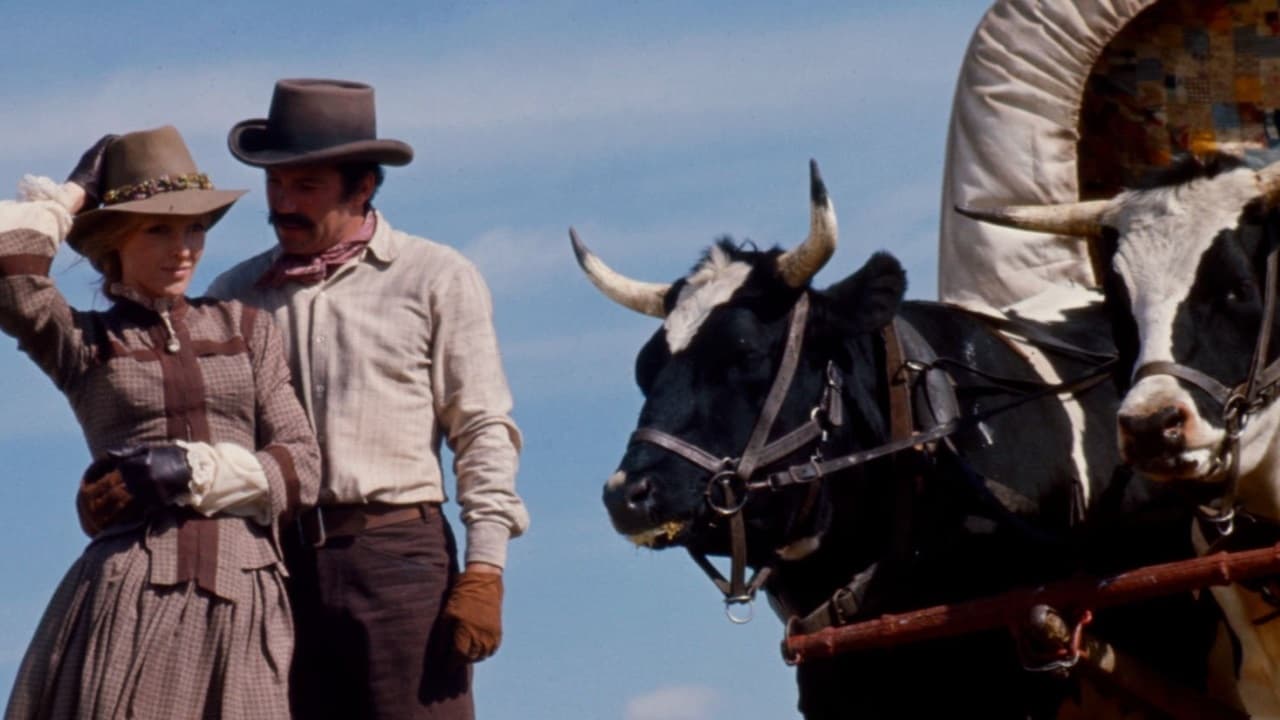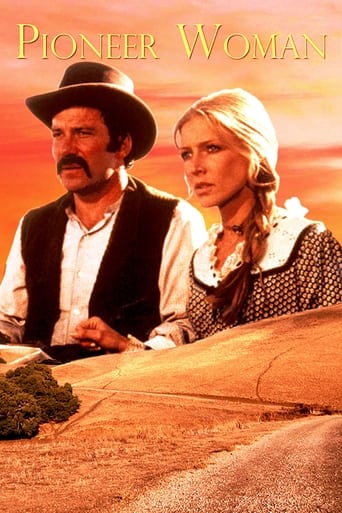weezeralfalfa
The film begins with the Sergeant family in an Indiana town. They are: papa John, mama Maggie, and half grown children Sarah and Jeremy. John, who spent his youth on a farm, is itching to change his life from a drug store clerk living in a rented house, to a farmer, who owns his own land, and builds his own house. But, he figures Indiana land will always be too expensive for him. Thus, he has decided to fulfill his dream of heading west where land was cheap or free. He took the liberty of buying some railroad land in Nebraska, without consulting his wife or children, who weren't enthusiastic about such a move. They sold everything they could, to buy supplies for their trip and train tickets for Lincoln, NE. From Lincoln, they traveled by prairie schooner, pulled by 2 oxen, with a milk cow in the rear. When they arrived at their land, they discovered they are regarded as claim jumpers by a group of men and women, who claim they have worked the land for 7 years, thus qualify for a claim to the land. A fight erupts, and John nearly drowns, before giving up. Instead of returning to Indiana, they agree to head west for Wyoming. They stop by a small crossroads , and the proprietor of a store welcomes them to settle on a peace of land next to his wheat farm. John miraculously breaks the sod for a large wheat field, builds a sod house, using the sod he plowed up, and plants his field in wheat, all within a few weeks, this being spring. They are lucky there are a few small trees around to provide roof support. The first rain storm is welcomed, but reveals a major leak or two in the roof. A much more serious consequence is the death of John, who drowned in a flash flood. Now, Maggie is in a quandary what to do: head back home, look for a job elsewhere, or find a new husband. Neighbor Douglas keeps hinting that he would be agreeable to a marriage. They decide to stay until the wheat is harvested to hopefully obtain enough money for a trip back to Indiana. They almost lose all their wheat, as well as their house, when a large prairie fire nearly engulfs these. They only lost a small percentage of their wheat in making a firebreak... I will stop my summary here.I'm impressed that oxen, rather than the more commonly portrayed horses, pulled their prairie schooner. Oxen were cheaper to buy, could pull more weight, and could better live off the prairie grasses. Thus, most pioneers used oxen, or mules, rather than horses to pull their wagon.Several criticisms: That was an awfully big wheat field for John to plant, using primitive seeding methods. Also, how were they going to market their wheat, being far from any population center or railroad. Also, they arrived in very early spring, when there might still be snow on the prairie and they should be wearing cold weather clothes.As others have mentioned, this film appears to have been regarded as a pilot for a TV series, hence the rather unsatisfying ending. A few years later, another film on the same subject: "Young Pioneers" was released, being 25 min. longer than the present 70 min. film. It too was a pilot for a TV series, which fizzled after 3 episodes: perhaps an indication of what would have happened if the present film had been followed by additional episodes. I would choose this later film over the present one, partly because it's long enough to dramatize more challenges. However, the stories are sufficiently different that, if you like this sort of subject, I would recommend seeing both. Both are presently available on You Tube, or DVDs.
calvinnme
A woman is forced to leave her comfy Indiana city to go to Nebraska with her family because her husband wants to farm. She faces finding out they were scammed and there is no land, a miscarriage, widowhood after they finally find a place to settle, and holding on to the place with her children. The one false note is her playing hard-to-get with an obviously smitten neighbor who is ringing her chimes as well.Joanna Pettet is the woman, William Shatner her husband and David Janssen the man who wants to be. If you can believe this bit of casting, Lance LeGault is a friendly neighbor and totally good guy. Helen Hunt makes her acting debut as the woman's daughter. Yes it's a feminist piece since a "pioneer feminist" is who the story revolves around, but it's not preachy and is well done.
thedreamer6
It does appear as though this movie was made as a pilot for a possible TV series, and in some ways it's too bad it didn't get a chance. The premise was good, and the potential for good future stories was laid out well --- including the discovery little Helen Hunt made of those strange rocks in the water bed. The basic story presents an element of realism that was missing in many of the western television shows from those days, and the idea that a woman with two children could successfully run a farm by herself was a subject unheard of. Perhaps William Shatner's brief appearance was meant only as way to get people to watch... as for me, I enjoyed seeing him looking young again and in a roll other than James T. Kirk. Maybe someday another producer will consider doing an updated version of this story, and that would be a plus.
paulbehrer22173
I saw this film on Encore Westerns at 7:10 a.m. yesterday morning, and its plot was: Maggie Sergeant (Joanna Pettet) is chronicling in her diary the hardships that she, her husband John (William Shatner) and their 2 children (Helen Hunt and Russell Baer) faced, starting with their move to Nebraska in March of 1867 (March 10, in fact) to settle on land that John had bought there, only to find on arriving there in late April that the area had been settled 7 years ago. In the argument between John and the people already settled there, Maggie suffers a miscarriage, which forces John to relinquish the property rights and ask Maggie if she wants to go to Wyoming and settle there instead. They arrive at a parcel of land next to a ranch owned by Robert Douglas (David Janssen), just outside the town of Big Pines, and settle there, planting wheat and vegetables. One day, John is returned to Maggie and the children by Mr. Douglas, who found him dead after he drowned in a flash flood while returning home from filing their settlement claim. Maggie takes on caring for her family, even banding together with her neighbors to save all that everyone owned from a prairie fire. While in town the following day, Maggie runs into Mr. Douglas, who asks her if she's heading back east with her kids. She says no, that that they're staying, and the story ends with her August 21, 1867 diary entry in which she says that she's sending for a teacher to establish a school for the children of the Pines Ridge community, and a minister to attend to the religious needs of all the families there, adding that she doesn't feel like an outsider anymore. I found this to be one of Ms. Pettet's best roles in her acting career since she was portraying a character determined to overcome the challenges presented to her. I even wept several times over the film's course. I'd really like to find this film on DVD, so I can view it again and again. Spoiler Alert: This wasn't Ms. Pettet's only appearance alongside David Janssen. She appeared in an episode of The Fugitive 7 years prior to this film, and in 3 episodes of Harry-O after this film aired on CBS.

